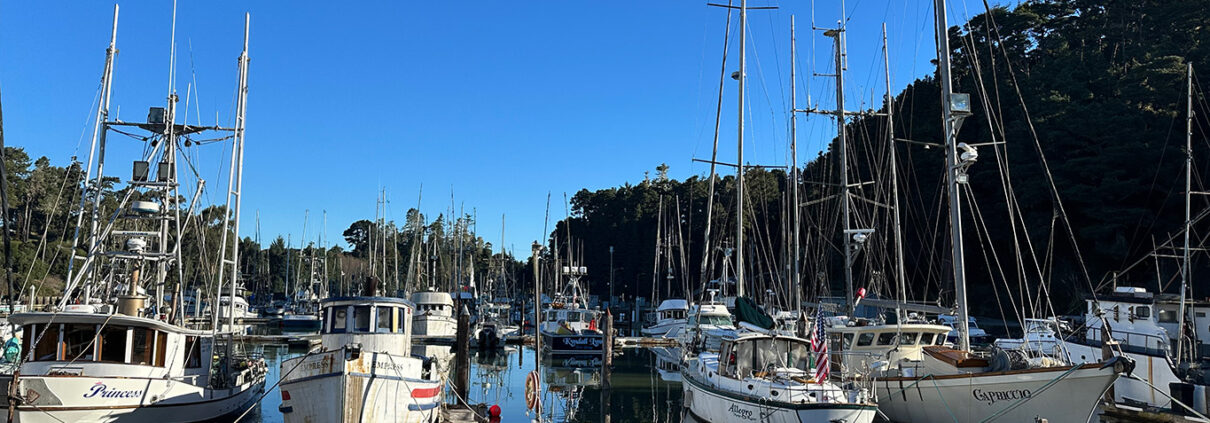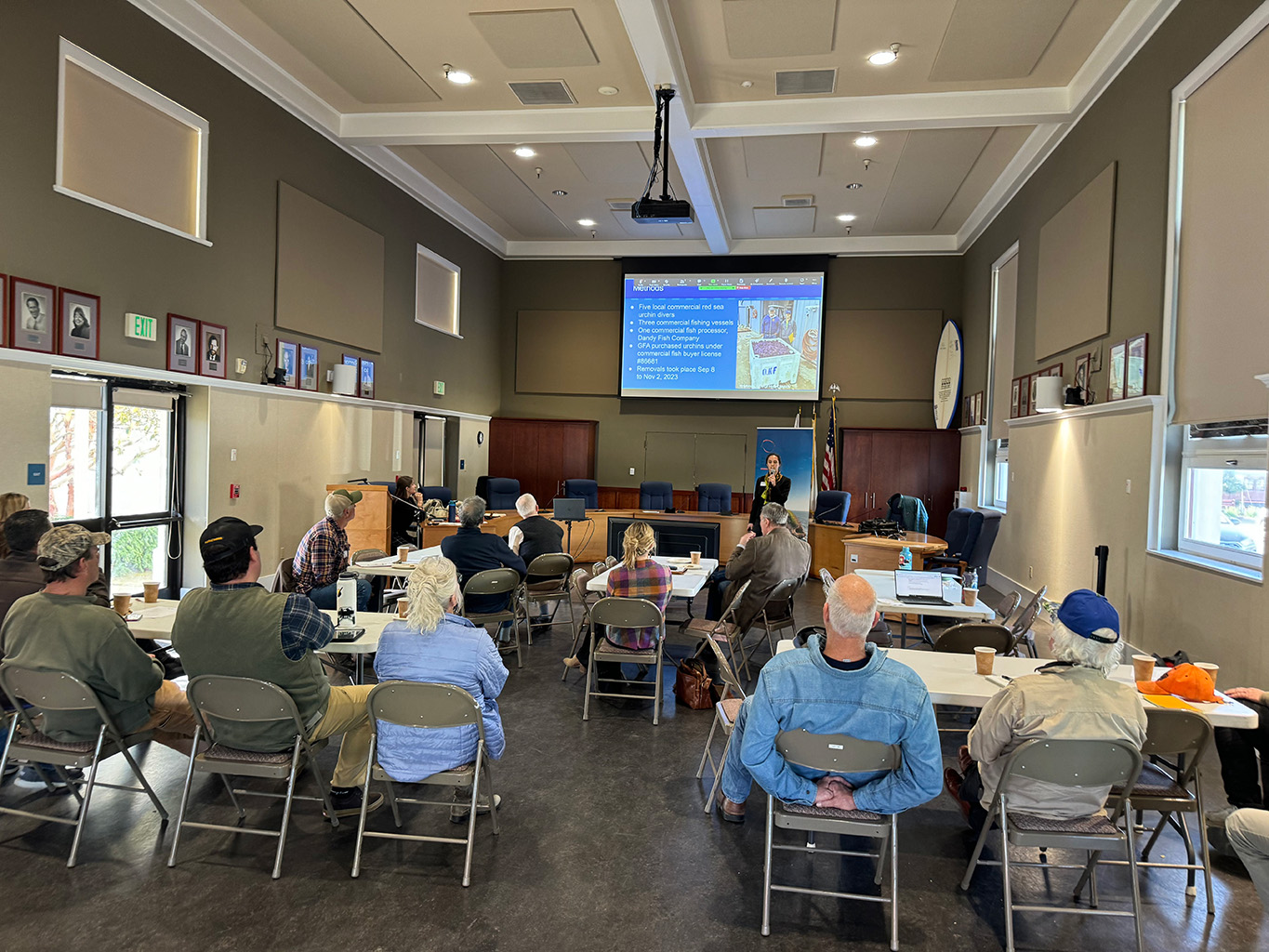Since 2013, kelp forests along the North California coastline have been disappearing due to changing ocean conditions – as much as a ~90% decline in kelp cover, in fact. This kelp loss has drastically impacted livelihoods and coastal economies that depend on healthy kelp forests, including the northern red sea urchin commercial fishery, which was officially declared a federal fishery disaster in 2019. With support from the Pacific States Marine Fisheries Commission, Ocean Science Trust – in partnership with experts at UC Santa Cruz and the California Sea Urchin Commission, Greater Farallones Association – embarked on a project that seeks to understand the social and economic impacts and responses of fishery and fishing community to kelp and red urchin declines.
As part of this project, OST and partners hosted a half-day workshop on February 9th in Fort Bragg, CA. The goal of the workshop was to collaboratively identify and evaluate potential strategies to improve the fishery’s and the fishing community’s resilience to future environmental disturbances. To achieve this goal, workshop participants mainly consisted of urchin divers and processors directly affected by the fishery collapse in the north coast. To foster dialogue and co-creation of resilience strategies, staff from key state agencies, local officials, and community members involved in some resilience-building initiatives were s invited to participate. The other key components of this project include socio-economic analyses using fishery logbook data and interviews with fishery participants, conducted by our partners.
We opened the workshop with presentations that set the scene on the federal fishery disaster process, kelp restoration efforts involving divers, and some preliminary findings from the interviews with divers and processors. The remaining time and main focus was spent brainstorming and discussing the needs and the best ways to support the red urchin fishery and fishery community in building resilience, in both small and large group settings.
Next, OST will synthesize and compile the workshop results into a summary document, with additional input from workshop participants and agency partners. Once the other socio-economic analyses are complete, OST will work closely to provide key findings to the industry, resource managers, and partners to facilitate their use in local, state, and federal decision-making and to assist in developing an actionable framework to effectively respond to future kelp loss and associated fishery impacts.
Stay tuned for a full report!





